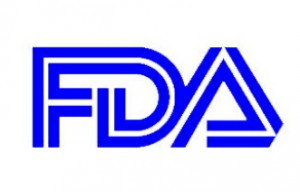The FDA has rejected a petition filed in 2008 by the owner of Organic Pastures Dairy to allow for the interstate sale of raw milk. In the letter, sent February 26, 2013 and signed by Michael Landa, Director of the Center for Food Safety and Applied Nutrition, the FDA states “your petition does not contain facts demonstrating any reasonable grounds for this proposed amendment to 21 CFR 1240.61 (the law prohibiting the sales), nor does it show that this proposal is in the public interest or will promote the objectives of the FDA and the statutes it administers.”
 In 1987, the FDA stated that the available record “demonstrated an association between the consumption of raw milk and the outbreak of disease.” Last year there were six confirmed food poisoning outbreaks linked to raw milk, which sickened at least 141 people. Several children developed HUS and suffered strokes as a result of their infections.
In 1987, the FDA stated that the available record “demonstrated an association between the consumption of raw milk and the outbreak of disease.” Last year there were six confirmed food poisoning outbreaks linked to raw milk, which sickened at least 141 people. Several children developed HUS and suffered strokes as a result of their infections.
In addition, the Surgeon General is “authorized to make and enforce such regulations as in his judgment are necessary to prevent the introduction, transmission, or spread of communicable diseases from foreign countries into the States or possessions, or from one State or possession into any other State or possession.” This authority has been delegated to the FDA.
One of the assertions in the petition stated that “raw un=pasteurized milk that is tested and authorized by a state agency for retail sale is not the same milk that is produced as intended for pasteurization under the pasteurized milk ordinance.” The FDA responds “This assertion mischaracterizes the regulation of milk intended to be consumed raw. Typical milk quality indicators are general indicators of animal health conditions and the level of sanitation that exists. These quality indicators do not provide any information as to the presence of absence of harmful bacteria. Raw milk with acceptable SPC and CC numbers may still contain deadly pathogens.
Indeed, in our interview with Dr. Heidi Kassenborg of the Minnesota Department of Agriculture’s Dairy and Food Inspection Division last year, she states that pathogens are not evenly distributed throughout the milk; they group in clusters. A test may show the milk is safe, but it could still contain E. coli and other pathogenic bacteria because there is no way to test every milliliter of the milk before it is sold. And it only takes 10 bacterium to make someone sick.
In answers to other assertions, the FDA states that there is no technology available other than pasteurization that would make raw milk safe. Microfiltration and bactofugation are not effective alternatives to pasteurization.
Raw milk is the cause of annual foodborne illness outbreaks, and in California alone, there were nine recalls involving raw milk since 2006. Seven of those recalls involved Organic Pastures Dairy, the petitioner’s facility. Offering liability insurance is not a viable option for raw milk sales as that is not the FDA’s concern; their goal is to prevent foodborne illness. Warning labels are not acceptable alternatives to pasteurization. Testing beyond state standards will not assure raw milk’s safety. Finally, the FDA has found that pasteurization does not change the nutritive or immunologic value of milk.




